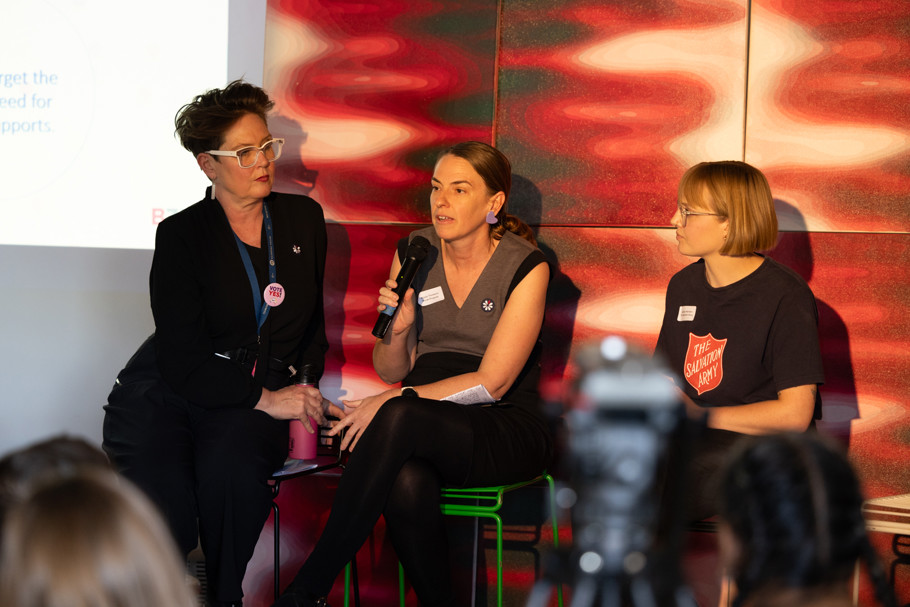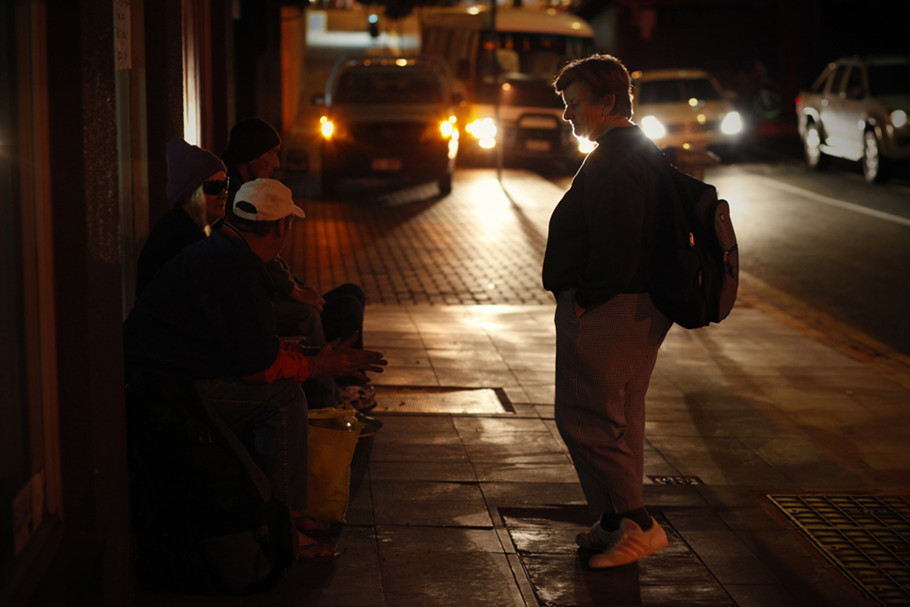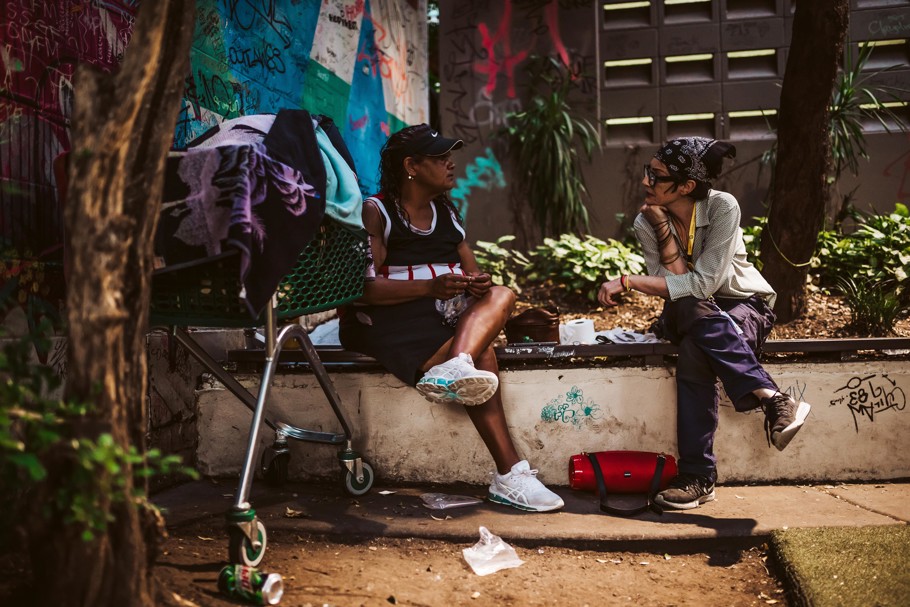Systems Change
Micah Projects is dedicated to collaboration and innovations that can help make lasting change to social and cultural systems that work against our vision.
Read below to find out how.

Brisbane Zero Collaboration
Through data actionable insights, advocacy and collaboration, the Brisbane Zero seeks to reduce homelessness for individuals and families rough sleeping by 2025.
This includes the people we know by name, who are or have been sleeping rough—on the streets, in parks, tents, cars, and/or cycling in and out of motels and emergency accommodation.
Brisbane Zero Forum 2023
Key figures
100+ attendees
across 20 organisations in the field of homelessness exchanged ideas and shared their knowledge and creative thinking.
Year Two Learning Report
Since early 2022, Griffith Centre for Systems Innovation (GCSI) has partnered with Brisbane Zero (BZ) and Logan Zero (LZ) as a learning partner and evaluator.
This report builds on the Year One Learning Report, highlighting how these initiatives have adapted, collaborated, and contributed to systemic change in the homelessness ecosystem.

Presenting findings
40 attendees from 15 organisations—including Brisbane City Council, Queensland Department Housing, and Queensland Correctional Services—participated in this session where year two key findings were shared by Prof Ingrid Burkett.
Advance to Zero Training
Key figures
10 training sessions
about Advance to Zero for over 9 services

Presenting strategy
At a learning session with more than 40 attendees across Australia, Brisbane Zero presented the 45+ First Nations Cohort Strategy. See below for more about the strategy.
Brisbane Zero Coordination Meetings & Presentations
Key figures
150+ Brisbane Zero meetings
held including presentations with over 50 unique stakeholders
10 organisations
including 5 meetings led by the Housing for Women’s Safety and Security Alliance

The Know-By-Name List
As a regional collaboration, Brisbane Zero collects and shares quality demographic and vulnerability data with consent from those on the Know By-Name List.
This list has been central to 2000+ advocacy discussions within the Brisbane Coordination Meetings and Cohort Strategy Groups.
Key figures
2,385 individual adults
are or have been sleeping rough, and/or cycling in and out of motels and emergency accommodation, 393 were housed.
989 families
and 1,907 in their care, are or have been sleeping rough, and/or cycling in and out of motels and emergency accommodation, 365 were housed.
Source: Brisbane Zero 2023-24 Collaborative Snapshot.

Journey Mapping
An advocacy tool to show the human impact of services and systems.
By representing a person’s history and lived experiences in their own words, journey maps help to understand both the complexity of the service system and people’s experiences of seeking outcomes. This helps decision makers and services to recognise the intangible, often unforeseen and hidden impacts of systemic failures on people’s lives.
Journeying with Brisbane Zero
View a Brisbane Zero Journey Map“Having the breakdown of health factors (mental, morbidity etc.) and what may expose you to homelessness. That enables us to ask for better resources and how we might work to prevent issues and how to support people to sustain their tenancy. The data brings about a better understanding to find solutions”.
— Brisbane Zero collaborator

45+ First Nations Cohort Strategy
41 individuals were housed this financial year through the strategy.
Co-led with Institute for Urban Indigenous Health (IUIH) and Communify to the goals for the Aboriginal and Torres Strait Islander Housing Action Plan.
Serra's Journey
Serra, who has been experiencing homelessness since 2022, received support through collaboration among Micah Projects - Mater Homefront Team, IUIH, and various Brisbane Zero stakeholders. In October 2023, Serra has successfully secured housing under the Strategy 45+ for First Nations Peoples, this demonstrates positive outcomes are achievable through collective efforts.
About the support she received during her pathway to housing:
"I’ve got some stability. Having that has allowed my children to come back also and just be able to start from the ground up again, and it’s been awesome. Its been 5 years since I’ve had them all together and the first time I’ve had them under the roof altogether, so I’m very very happy about that. [...] With their support they’ve enabled the one thing that most of us want and need, which is a secure place to live. We can close our door and know that we’re safe, our things are safe and we can wake up safe, you know? Peaceful, safe. I’m ready for more now!"
— Serra, housed in October 2023
Contributing to Structural and System Changes
Contributing to Supportive Housing supply, services and investment, and to the development of a Supportive Housing Policy for Queensland endorsed by 18 peak bodies and peer organisations.
We acknowledge the Ellen Whitty Trust and the reference group for their contributions to Brisbane Zero. Brisbane Zero Data Lead and Service Coordination is funded by Queensland Department of Housing & the Ellen Whitty Trust.
Supportive Housing Policy
A Contribution to the Development of a Supportive Housing Policy for QueenslandData for this financial year includes contributions from the following Brisbane Zero regional members:
3rd Space
Australian Community Support Organisation
Anglicare SEQ
Aboriginal and Torres Strait Islander Community Health Service (ATSICHS)
Brisbane Youth Service
Churches of Christ Housing Services
Communify
Institute for Urban Indigenous Health
Kyabra
Micah Projects
Mission Australia
Murri Watch
UnitingCare Community
The Salvation Army